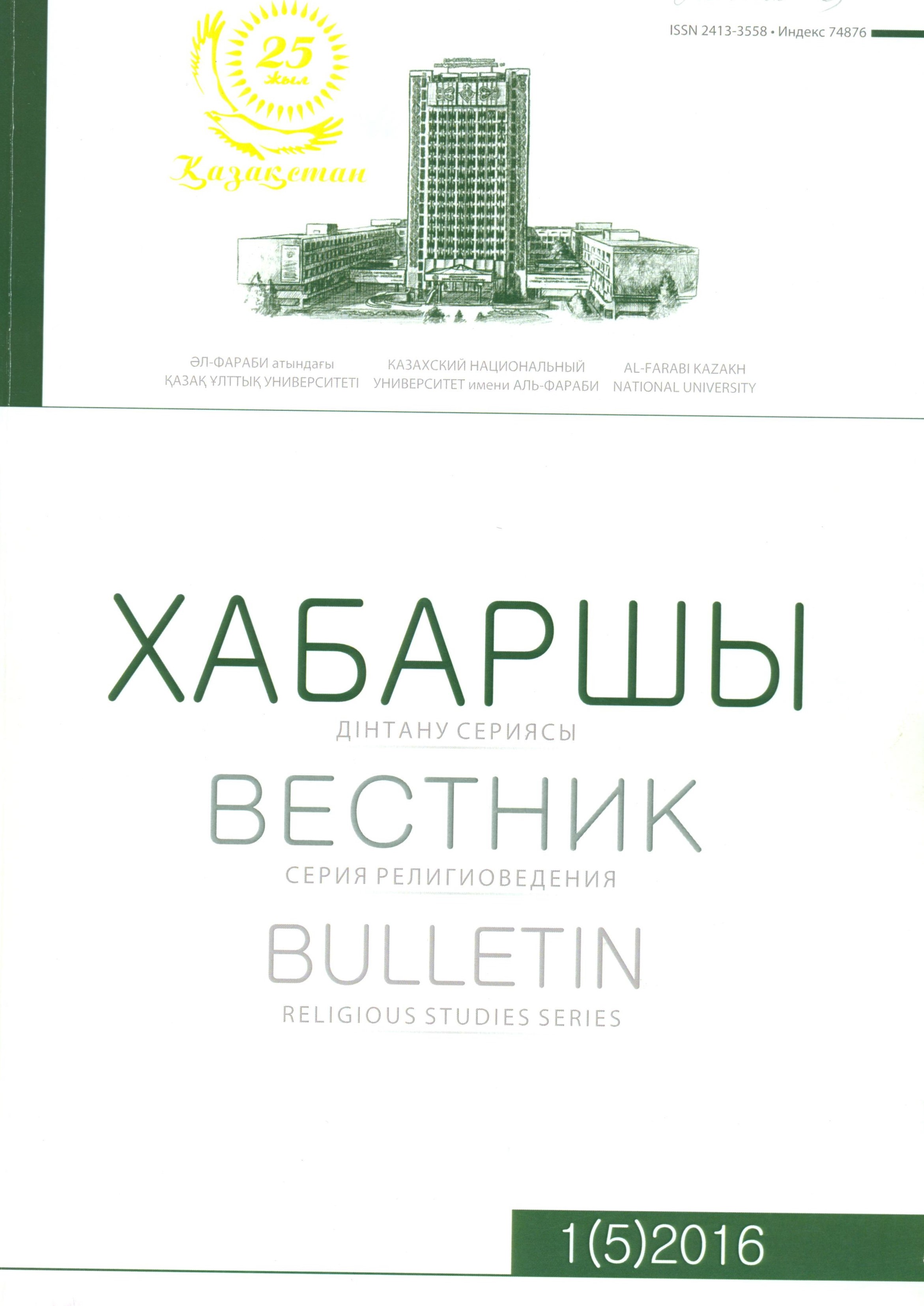About the continuity of religious concepts of Kazakh people
DOI:
https://doi.org/10.26577/EJRS-2016-1-167Abstract
People are always searching for rational forms of organization of social life. Thoughts on given question made us to search the answer to the question, why there is evil and how to get rid of it? And the most gifted representatives of Kazakh nation connected the solution of given question with religion and education.
The spiritual world of Kazakh people was deeply reflected in poetry. Everything was reflected in poetry: the way of life, habits and morals, rituals, customs and traditions of nomadic nation. The features of economic and social life were forced to search for the answers to burning questions of social system. They provided food for the thought of universe essence, the ratio of natural and supernatural world, the corporeal world of things and incorporeal world of spirits and the role of Tengri in fate decision of earthly man.
The cult of Tengri was so strong that from ancient times nomads every step of their life, all troubles, failures, sorrows and their hopes, happiness associated with it. Images of folk superstitions meant preventions from thoughtless steps and actions.
Oral folk arts of Kazakh thinkers, works of Ch.Valikhanov, A.Kunanbaev, Sh.Kudayberdiev, M.Dulatov, S.Asfendiyarov, A.Baitursynov, A.Bokeyhanov and others are indicative about it.
Their works are invaluable sources in the study of meaning and role of belief in the process of national worldview formation. In this regard, problems of spiritual development of mankind also are taken into account in the article.
References
2 Ежелгі дәуір әдебиеті / хрестоматия / /Құраст. А. Қыраубаева – Алматы: Ана тілі, 1991. 2-кітап – 280 б.
3 Марғұлан Ә. Ежелгі жыр аңыздар. – Алматы: Жазушы, 1985. – 368 б.
4 Бес ғасыр жырлайды /Құраст. М. Мағауин., М. Байділдаев. – Алматы: Жазушы, 1998. – Т.1. – 384 б.
5 Валиханов Ч.Ч. Очерки жизни и деятельности Ч.Ч Валиханова. –Алматы: Каз.Сов.энц. 1984. – Т.1. – 431 с.
6 Сапаргалиев Г. Карательная политика царизма в Казахстане (1905-1917) – Алматы: Наука, 1966. – 376 с.
7 Прошлое Казахстана в источниках и материалах /Под. ред. С.Д. Асфендиярова. – Алматы: Каз.краев.из-во, 1935. – 297 с.
8 Материалы по истории КазССР. 1741-1751гг /Под.ред. М.П. Вяткина. –Алматы: АН КазССР, 1948. – Т.2. Ч.ІІ. – 457 с.
9 Құрбанғали Халид. Тауарих Хамса – Алматы: Қазақстан, 1992. – 300 б.
10 Шәкәрім. Өлеңдер мен поэмалар. – Алматы: Жалын, 1988. – 256 б.
11 Шәкәрім. Иманым. – Алматы: Арыс, 2000. – 322 б.
12 Ядринцев Н. Сибирские инородцы, их быт и современное состояние –СПб.: 1891. – 226 с.
13 Қазақтар шет ел әдебиетінде / Құраст. Есмағамбетов Көшім. – Алматы: Атамұра-Қазақстан, 1994. – 234 б.
14 Кенжебаев Б. ХХ ғасыр басындағы әдебиет – Алматы: Білім, 1993. – 244 б.
15 Бөкейханов Ә. Таңдамалы – Алматы: Қазақ энциклопедиясы. 1995. – 478 б.













